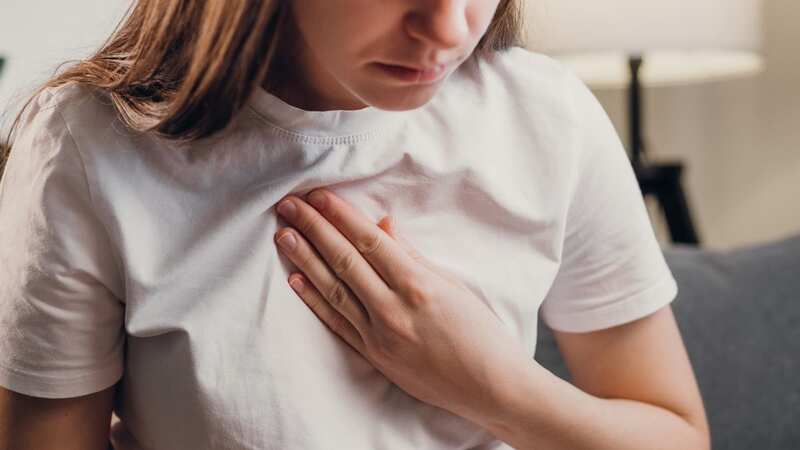Heart attack warning as ‘sudden’ anxiety could signal medical emergency

One person is admitted into a UK hospital every five minutes after suffering from a heart attack, but some patients misread their symptoms and fail to seek medical attention.
A heart attack is a life-threatening emergency that strikes when the supply of blood to the heart is suddenly blocked, usually by a blood clot.
The most common warning sign includes chest pain that may feel like pressure, tightness or squeezing. According to the British Heart Foundation (BHF), the uncomfortable sensation often resembles “indigestion or a burning sensation”. But the charity has warned of a lesser-known symptom that could indicate that you’re having a heart attack.
A sudden feeling of anxiety, which is similar to a panic attack, could signal the serious medical emergency. This is because symptoms are so alike that it sometimes can be hard to tell the difference.
Dr. Glenn N. Levine, chief of cardiology at the Michael E. DeBakey VA Medical Center in Houston, recommends: "If in doubt, one would want to err on the side of caution and be quickly evaluated in an ER to make sure this was not a heart attack."
 Teachers, civil servants and train drivers walk out in biggest strike in decade
Teachers, civil servants and train drivers walk out in biggest strike in decade
 A heart attack strikes when the supply of blood to the heart is suddenly blocked (Getty Images/iStockphoto)
A heart attack strikes when the supply of blood to the heart is suddenly blocked (Getty Images/iStockphoto)Symptoms that cross over include a rapid heart beat, difficulty breathing, feeling faint or light-headed, and chest pain. The American Heart Association explains that panic attacks come on quickly and generally reach peak intensity in about 10 minutes. They can be triggered by a traumatic event or major life stress, but they can also occur for no apparent reason.
Another lesser-known symptom of a heart attack is excessive coughing or wheezing due to a build-up of fluid in the lungs, informs the BHF. The Mayo Clinic adds that fluid build up in the lungs - known as pulmonary edema - and in and around the airways can cause symptoms that resemble asthma.
NHS Inform has listed the most common heart attack red flags to watch out for, these include:
Central chest pain or discomfort in the chest that doesn't go away – it may feel like pressure, tightness or squeezing
Pain that radiates down the left arm, or both arms, or to the neck, jaw, back or stomach
Unconsciousness
Seizures or fitting
Difficulty breathing (snoring or rasping)
Rapid heart beat
Low or undetectable heartbeat
 Greggs, Costa & Pret coffees have 'huge differences in caffeine', says report
Greggs, Costa & Pret coffees have 'huge differences in caffeine', says report
Blue or pale tingling of knees, hands and lips
Chest pain and breathlessness, nausea, sweating or coughing up blood
If you're experiencing any of the symptoms described, it's vital you dial 999 immediately for an ambulance. Pain levels can vary from person to person, so what one person might describe as severe pain, another might describe it as uncomfortable.
 Excessive coughing or wheezing is a lesser-known symptom of a heart attack (Getty Images/iStockphoto)
Excessive coughing or wheezing is a lesser-known symptom of a heart attack (Getty Images/iStockphoto)The BHF writes: "Heart attack symptoms can persist over days, or they can come on suddenly and unexpectedly. It’s really important that you seek medical attention regardless as quickly as possible.”
The charity states you should call for an ambulance if your chest pain:
Is sudden
Spreads to your arms, back, neck or jaw
Feels heavy or tight
Once at the hospital, an electrocardiogram (ECG) should be carried out to measure the electrical activity of the heart, which can diagnose a heart attack, the NHS explains. The treatment for a heart attack will depend on which type of heart attack you had.
How to reduce your risk of a heart attack
Making positive lifestyle changes is the most effective way to lower your risk of a heart attack. According to the NHS, these include:
Eating a healthy diet
Not smoking
Not drinking alcohol excessively
Participating in regular exercise
Maintaining a healthy body weight
Keeping your blood pressure at a healthy level
Read more similar news:
Comments:
comments powered by Disqus

































